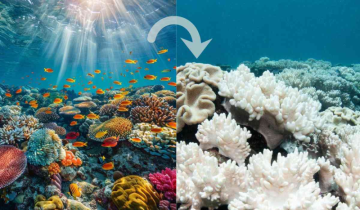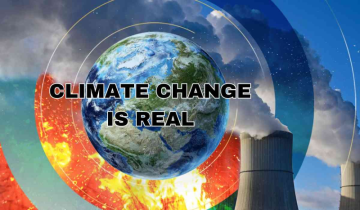According to a recent US research report, the Arctic experienced its hottest summer ever recorded this year. This unprecedented heatwave has resulted in devastating wildfires and the rapid melting of glaciers. Furthermore, it poses a significant threat to the entire planet, with concerns such as rising sea levels.
The 2023 Arctic Report Card by the National Oceanic and Atmospheric Administration (NOAA) reveals that the summer surface air temperatures in the Arctic have reached their highest levels since at least 1900. This alarming trend is a result of human-induced climate change, causing the Arctic to warm at a rate twice as fast as the global average.
_1702521866.jpg)
Based on the annual research, there is a growing trend of catastrophic weather and climate events that have global impacts. The warming in parts of northern Canada and the Canadian Arctic Archipelago, along with lower-than-average rainfall, led to a particularly severe wildfire season in those regions.
Greenland's ice sheet has shed an additional 350 trillion pounds (158.7 billion metric tonnes) in weight, keeping up with the ongoing pattern that started back in 1998.
According to the paper, the effects of Arctic warming extend far beyond the region. The melting ice leads to rising sea levels, posing a threat to coastal communities by putting houses, transportation, and businesses at risk.
Due to the abundant snowfall experienced this year, the damage to Greenland's ice sheet was significantly less than the average over the past 22 years; however, the heat still had its consequences.
_1702521988.jpg)
According to the study, Summit Station, which is the highest point on the ice sheet, experienced melting for the fifth time in the 34-year record. The measure of the cumulative melt-day area, which indicates the amount of melting that occurs each day, was nearing its highest level ever recorded.
According to Brenda Ekwurzel, the director of climate science at the Union of Concerned Scientists, the report indicates that the irreversible climate damages resulting from the Arctic's overheating will persistently impact North America and Eurasia. It is worth noting that although Brenda Ekwurzel has conducted climate research in the Arctic, she did not contribute to the report.
Photo: Wikipedia
(With Input from agencies)
© Copyright 2023. All Rights Reserved Powered by Vygr Media.






